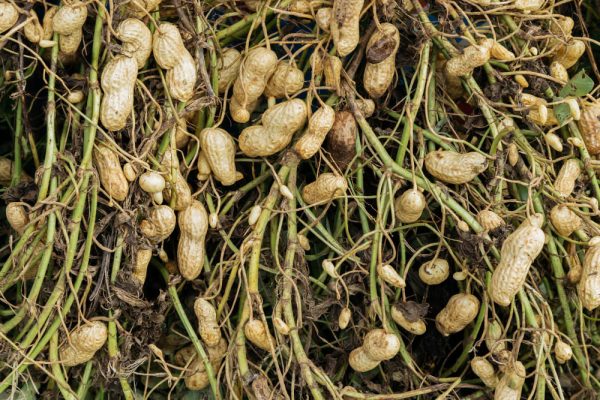Also known as groundnuts, peanuts typically grow to a height of 30 to 50 cm (12 to 20 inches). After pollination, the flower’s stalk elongates and buries itself in the soil, allowing the seeds to develop underground. The pods, or legumes, usually contain one to four seeds and are encased in a thin shell that varies in color from whitish to dark purple.



Peanuts originated in South America and have been cultivated for thousands of years. They were introduced to other regions through European exploration and the transatlantic slave trade. Peanuts are also known for their high levels of antioxidants and bioactive compounds, contributing to various health benefits including heart health and weight management.
Peanut are a type of legume belonging to the Fabaceae family, which includes peas and lentils. Despite their common name, peanuts are not true nuts; they are more closely related to beans and other legumes. Peanuts are highly nutritious, rich in protein (approximately 25-30% of their total calories), healthy fats (about 49% fat content), vitamins, and minerals. They provide essential nutrients such as vitamin E, magnesium, phosphorus, and several B vitamins.
Peanuts are high in monounsaturated and polyunsaturated fats, which can help lower bad cholesterol (LDL) levels while maintaining good cholesterol (HDL) levels. This fat composition is beneficial for heart health, potentially reducing the risk of heart disease and stroke.
Due to their high protein and fiber content, peanuts can promote feelings of fullness, making them an effective snack for weight management.
Some studies indicate that the bioactive compounds found in peanuts, such as phytosterols and resveratrol, may have anti-cancer properties. These compounds can help reduce inflammation and lower the risk of certain cancers, including gastric cancer.
Nutrients like niacin and vitamin B1 found in peanuts are linked to improved cognitive function and may help protect against neurodegenerative diseases such as Alzheimer’s.
Peanuts contain minerals like magnesium, phosphorus, and calcium that are vital for maintaining strong bones. Regular consumption can support bone density and strength.
Peanuts have a low glycemic index (GI), meaning they do not cause significant spikes in blood sugar levels. This characteristic makes them suitable for individuals with diabetes or those at risk of developing diabetes.
If you have any question, don’t hesitate to contact us!
Copyright © 2024 Sow & Tell Indonesia | All Rights Reserved | Terms and Conditions